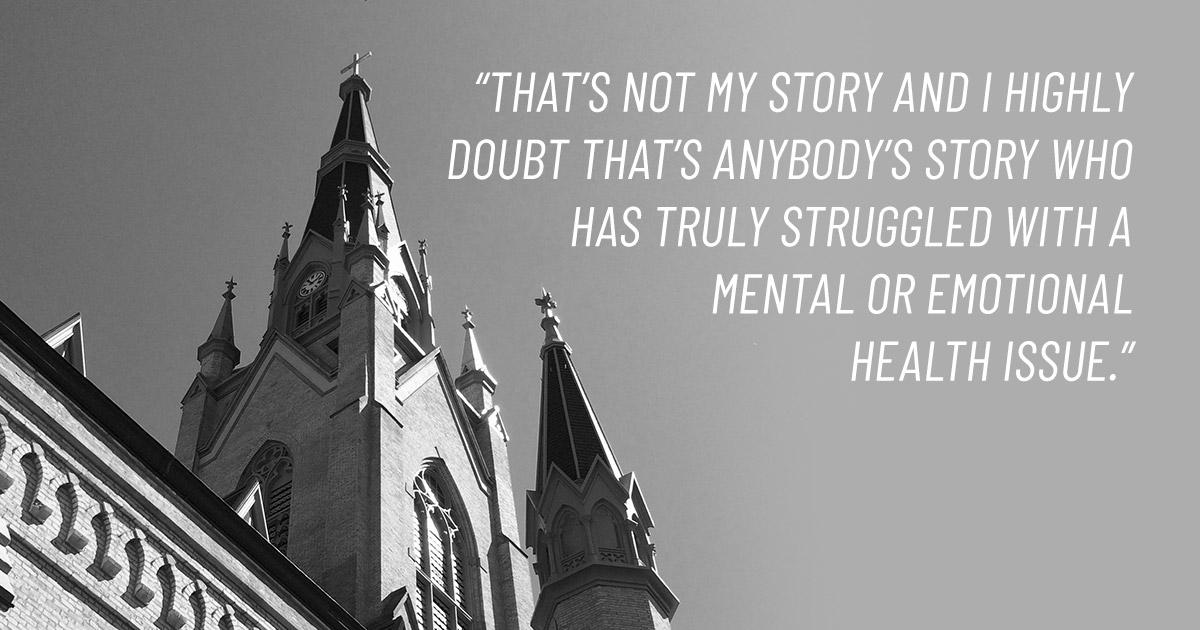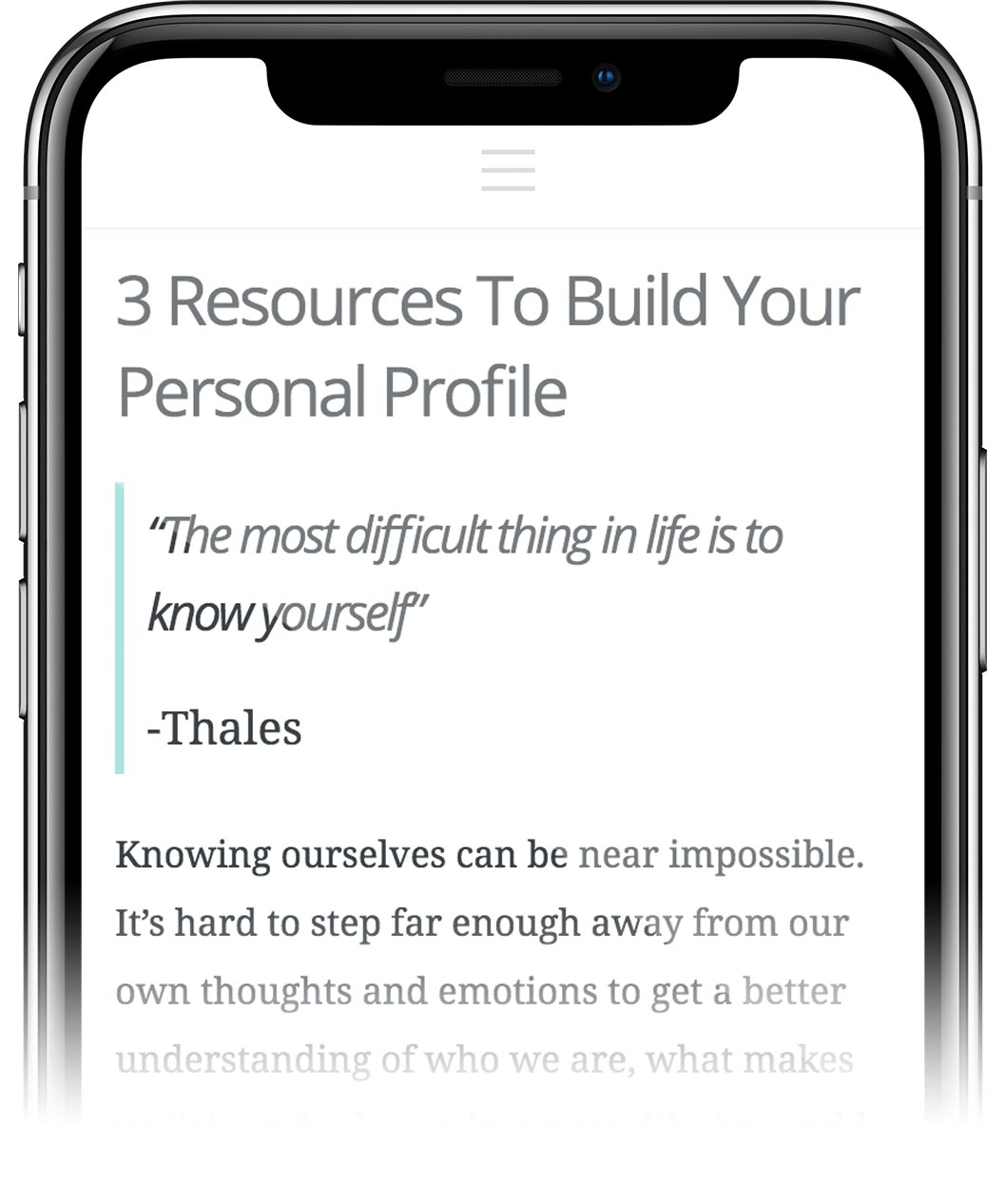Mar 06, 2018 / Anxiety
God’s Role In Mental Health – A Millennial’s Viewpoint

Is emotional and mental health a problem for us to resolve on our own? Or perhaps God is solely responsible for this and we are helpless to make improvements outside his will.
The question of God’s role is one that often plagues my writing. As I aspire to write and share openly about my journey I’ve never intended to be preachy. I’m not qualified…I didn’t go to seminary…I don’t want to be another voice telling people that if they just prayed harder and had more faith they could overcome depression and anxiety.
That’s not my story and I highly doubt that’s anybody’s story who has truly struggled with a mental or emotional health issue.
In the wake of the Parkland school shooting, I came across an article on the topic of God’s role in our mental health. It referenced this tweet:
We will find mental health when we stop staring in the mirror, and fix our eyes on the strength and beauty of God.
– Desiring God (@desiringGod)
While certainly well-meaning, this viewpoint can be so hurtful to people who are struggling. It’s like walking up to a starving child in Africa and saying: “You’ll find food when you stop looking for it and just look to God to provide.” This is really the mindset of some people. They believe that since God can fix anything He wants it is therefore really our fault that we are stuck in a rut emotionally.
It’s easy to get fed up with these overly-religious views that discount science, life experiences, trauma, and human chemistry…and tell us that we can just have more faith and we’ll be better. So, if one end of the spectrum is “look to God and He’ll fix everything” the other end is probably “go to counseling, read books on mental health, figure it out through your human knowledge.”
For those of us in the millennial generation, we’re prone to go towards the anti-God end of the spectrum. We want to figure things out ourselves. We believe in the science behind depression and anxiety. We believe in cognitive-behavioral therapy. We believe that we’re smart enough as a society to figure out a solution to this problem.
Some of us have had personal experience with the overly-spiritualized end of the spectrum which has scared us towards the other side.
When I was 18 years old I took a mission trip to South America. While there I began to experience panic attacks for the first time in my life. They were so severe that I ended up spending 4 days in a third-world hospital. My heart rate was spiking so high that they had to drug me up with some pretty heavy stuff just to get me to calm down. A few days after I had been stabilized, and while still in that country, some well-meaning Christians began trying to persuade me into dropping the meds and just praying for God to take away the panic attacks.
Again…I’m not qualified to speak on the theological aspects of this…but from someone who experienced this firsthand I can tell you that I needed BOTH prayer AND medication at that moment. Telling me that I should just pray harder did nothing to calm my anxiety…in fact, it made it worse! It made me worried that God was mad at me, punishing me, and that I was doing something wrong.
I think as Christians we do this far too often. We try and sugarcoat other people’s problems and we belittle their pain when we say to just believe that God will make it better. And on the reverse side, I think as a millennial, I far too often discount God’s role and think that I have to find the solution myself.
The Truth: Of course God is involved!
It’s so naïve to go to either end of this spectrum in my humble opinion. Of course God is involved in our struggles AND of course we are to pursue healthy outlets like counseling, journaling, and sometimes medication.
God wants us to pray for our emotional health but not because he always wants to heal us. He wants to take us through a process and if that’s true there must be a reason for this.
Here are two of the reasons I believe God allows us to go through hardships:
- He wants to take us through a process so we learn to rely on Him while we are still in the struggle.
- He wants to strengthen our faith in hard times so that we’re more confident in Him in the future.
In the midst of depression, anxiety, and panic attacks we do need to pray more! But even if God were to magically fix our present feelings and take away everything that brought us to the place of depression or anxiety that still doesn’t give us much hope of a better future. We’re still going to face the same problems down the road. I believe God wants to bring us through the fire of these hard times so we are stronger for the trials that are going to come later in life.
We’re going to experience pain in our futures. God’s desire is that in our current pain we learn how to pray and believe that He is still filled with love for us…even if He doesn’t fix our problem right away. This is how we learn to be secure about the future, by knowing that we have endured hardship and God has sustained us through it.
“He comforts us in all our troubles so that we can comfort others. When they are troubled, we will be able to give them the same comfort God has given us.”
– 2 Corinthians 1:4
I’ve come to the conclusion that it’s impossible for me to leave God out of my writing. It’s impossible to talk about my story with emotional health and not address God’s role in this. Any comfort and help I have received from God has a purpose. Part of that is for me to pass it along to others.
While I’m not always going to walk perfectly down the middle of that spectrum I do believe that God has to be involved. We can’t separate the two and truly pursue emotional health.
We do need to pray more and have more faith and ask more of God…
AND
We do need to seek professional help, read books, talk to counselors…
Maybe all of this is just an opinion…I can’t say it enough – I don’t feel qualified to speak about theological issues. If you’ve experienced a struggle with emotional or mental health I’d love to know your thoughts. Where do you fall on the spectrum?
